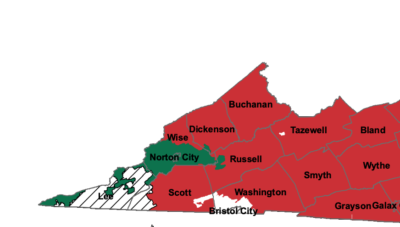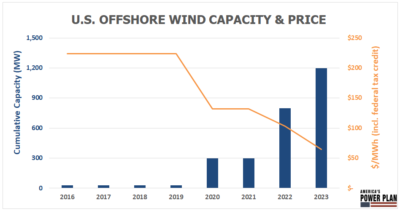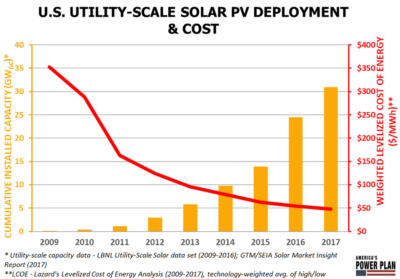Front Porch Blog
Instead, Old Dominion Power — a unit of Kentucky Utilities that serves 30,000 customers in far Southwest Virginia — is moving in the opposite direction. On February 15, ODP requested the State Corporation Commission’s permission to raise electricity bills for its Virginia customers. The utility proposed increasing the “fuel factor” portion of its rates, which is a component of every customer’s monthly bill that the State Corporation Commission can adjust to allow a utility to recover fluctuating fuel costs associated with the generation of electricity.
Join us at the State Corporation Commission’s public hearing in Norton, Va., on May 23!
It may sound abstract, but the impacts for Southwest Virginia communities are real. If ODP’s plan is approved, a typical residential customer’s bill will increase by $4.03 per month, representing a 3.76 percent increase in monthly bills for average residential customers. This increase comes to an area where between 17.6 percent and 28.2 percent of the population lives in poverty, compared to 10.6 percent across Virginia, and at a time when communities are trying to lift themselves out of economic decline and attract new businesses to the area.
In its application to the State Corporation Commission, ODP justifies this increase by stating it expects coal costs to increase by 4.7 percent over the next year. The utility’s fuel forecast also shows that the natural gas expense on a dollar-per-kilowatt basis is expected to increase by 0.9 percent over that time.
But ODP doesn’t have to continue to rely on these fossil fuel resources that are becoming increasingly expensive. Industry data shows that building renewable energy facilities is now cheaper than continuing to run existing coal plants, even when considering subsidies. In other words, electricity customers will save money on their bills if utilities begin to shut down coal plants and replace them with solar or wind energy, rather than continuing to run the coal plants that are polluting our communities’ air and water.
And clean energy generation costs will only continue to fall in the coming decades. The National Renewable Energy Laboratory estimates that photovoltaic utility solar costs will decline 60 percent by 2050, and technological breakthroughs could cut costs up to 80 percent by 2050. NREL also projects a 30 percent reduction in the cost of onshore wind by 2050, which could become a roughly 60 percent reduction with technological breakthroughs.
Furthermore, energy efficiency has been proven be the least-cost energy resource option, providing utilities and consumers with their best bang for their buck. As the saying goes, the cheapest kilowatt-hour is the one you don’t use.
Unfortunately, ODP only generates 1 percent of its electricity from renewable resources, meaning the utility is charging customers more money to continue to operate more expensive power plants when cheaper, cleaner alternatives are readily available. The State Corporation Commission should deny ODP’s requested rate increase and compel the utility to seek cheaper, renewable options instead.
If you’re interested in hearing more about this case and voicing your concerns to the State Corporation Commission about rising energy costs due to the continued use of extractive fuels, join us at the public hearing! It will be May 23 at 5:45pm at the City of Norton Municipal Building (628 Virginia Avenue N.W., Norton VA).
Click here to register to join us.
After you register, we’ll provide talking points you can use at the hearing. We hope to see you there!
PREVIOUS
NEXT
Related News

Leave a comment
Your email address will not be published. Required fields are marked *



